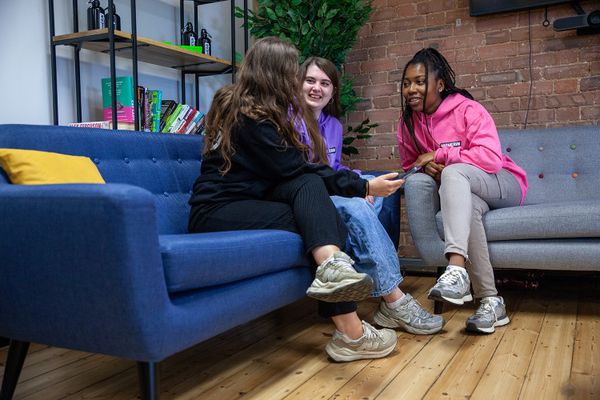
What is an Internship?
An internship is paid work experience that lasts between one and four months. It usually happens during the summer when universities are not in term time and is aimed at students in their second or third year of university.

Interns work full-time to get experience in a particular sector and discover what it’s like to work for a specific company. Much more than just making coffee, the opportunity will provide you with an insight into different areas of the professional environment, including:
Company culture, values and vision
Operating high-tech software and equipment
Working for a small, medium-sized or large organisation
Collaborating across different teams
Working on real-life projects
Completing tasks and taking on work as needed.
Internships are also a way for employers to scope out talent for graduate roles and beyond. So they’re super worth it.
An alternative to internships are placement years. If your university offers you the opportunity to take a year out of your studies to work, a placement is an excellent option. Find out more below.
What are the benefits of doing an internship?
Whilst you might have to give up some of your summer holidays, there is so much to love about internships.
Here are just some benefits:
Stand out from the crowd
With 86 applicants per job, the competition is tough! An internship can be the extra boost your CV needs to get noticed. In fact, loads of interns return as graduates at the same company.
Try before you buy
Think of an internship as a "test drive" for your future career. It’s your chance to explore a profession before fully committing.
Put theory into practice
University is full of theory, but internships let you apply it in the real world. That’s why employers love grads with internship experience.
Make valuable connections
You'll meet experienced professionals who could become key contacts. Plus, there’s plenty of time to make friends and join in on the social side of work!

Working with my manager and other members of the team allowed me to understand what the role requires and pick up on any of the technical skills required. My manager gave me multiple opportunities to work and showcase some of the skills required and handed me the responsibility of carrying out analysis by myself. This was extremely useful in my career growth. Data Science Analyst Intern, Expedia Group
Do interns get paid?
YES. At Higherin, we believe every company should pay their interns a fair salary. An internship is a real job, therefore, you deserve to be paid for your work.
A lot of employers are offering more competitive salaries than ever before with lots of perks included. Using the reviews submitted by thousands of interns on Higherin, we worked out that the average salary for an internship is currently £20,000 a year (pro rata).
Internships in London or other major cities tend to pay more than similar schemes in other parts of the UK because the cost of living is higher.
You can dive into in-depth salary statistics in our Best-Paid Internships article.
When should I apply?
Most of the companies we work with at Higherin open their internships between September and March, ready to start just before the summer kicks off.
With many employers hiring on a first come, first served basis, if you leave it much later to start applying, you may miss out on your dream role. Your best bet is to start looking around September time and spend the next few months actively applying, alongside your studies.
Some of the larger companies in the UK, like PwC, EY and Deloitte, advertise for their work experience programmes all year round. As you can imagine, they receive more applications than Britain’s Got Talent, so you’ll still want to get yours in as early as possible.
How to land an internship
Start searching - Use job boards to filter internships by area, employer, or industry. You can start your internship search right here on Higherin. Fancy going international? It’s possible, just keep relocation and costs in mind.
Polish your CV - Don’t worry about tons of experience; focus on showcasing your skills. Highlight what makes you stand out, like running a society or being a spreadsheet whizz.
Use your network - Leverage any contacts in your desired industry or network on LinkedIn. You never know where a tip or connection might lead!
We have loads of advice on how to absolutely boss the application process. Click below for all the CV, cover letter and interview tips you could ask for.

























